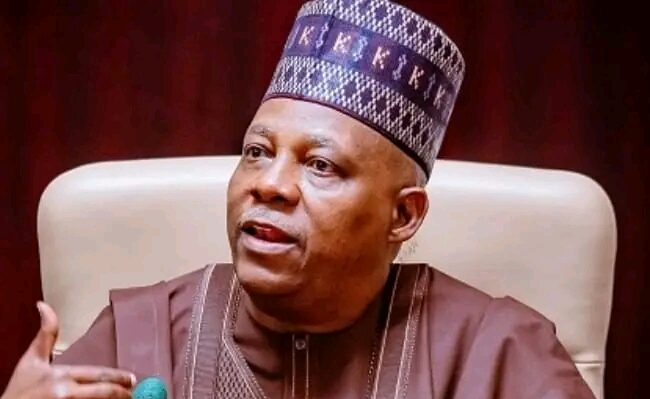The Federal Government of Nigeria has launched a new initiative, the Humanitarian Supply Chain Management—Partnership for Localisation Project, to localize the country’s humanitarian response system.
Vice President Kashim Shettima unveiled this initiative in Abuja, emphasizing the need to empower local actors and utilize local resources to effectively address Nigeria’s increasing humanitarian challenges.
In his address, VP Shettima, represented by Sen. Ibrahim Hassan Hadejia, highlighted that climate change and global economic crises have intensified Nigeria’s complex humanitarian situation.
He announced that President Bola Ahmed Tinubu has approved the establishment of a new Disaster Relief Fund to provide immediate assistance to disaster victims nationwide, complementing the broader localization framework.
Shettima stated, “Inaction is simply not an option, and the cost of failing to address these crises at their roots will be devastating.
“Localisation is not merely about placing local actors at the centre of humanitarian efforts; it is the key to a more inclusive, resilient future for Nigeria.”
The new initiative builds on Nigeria’s Localisation Framework, which was established in 2019, and aims to put national and local institutions at the forefront of humanitarian decision-making.
The project is implemented by the Office of the Special Assistant to the President on Special Duties, Emergency and Logistics in partnership with the Federal Ministry of Budget and Economic Planning, and the USA-based Fritz Institute and other local partners.
The Vice President said, “Local communities understand their challenges best, and by empowering them, we provide them with the tools to shape their own futures.”
VP Shettima explained that the project represents a key component of President Tinubu administration’s broader strategy, focusing on human capital development and improved humanitarian responses through enhanced health outcomes, education access, and livelihood stability for affected communities.
Earlier, Special Assistant to the President on Special Duties, Emergency and Logistics (Office of The Vice President), Mohammed Ahmed, noted the importance of a collaborative approach to humanitarian aid.
“There is a need for a whole-of-government and whole-of-society approach. Government must be participatory and inclusive, ensuring that all voices from every segment of society are heard. Everyone is impacted by issues like climate change and conflict,” he explained.
Ahmed further noted that the project would support Nigeria’s localisation framework, creating a platform to advance the agenda. “We have a lot of work to do to meet Nigeria’s targets on this,” he added.
Fritz Institute’s Project Director, Mitsuko Mizushima, said the initiative is focused on local engagement, pointing out that this project “is designed to give local people a seat at the table.”
She pointed to the growing recognition of the importance of supply chain management and the need for capacity building.
“We are bringing together international and local organisations, along with academia, to develop standardised training in supply chain management. Over the years, more than 25,000 people have completed this training. It’s accessible to anyone, anywhere, anytime—and it’s free,” Mizushima said.
Also, the Chief Adviser and Coordinator to the Government of Borno State on Sustainable Development, Partnerships and Humanitarian Support, Dr. Mairo Mandara, said localisation means responding to the needs of the people.
She noted that in Borno State, they have defined what they need “and are taking a human-centered approach to humanitarian transition into development.
“Once we remain focused on our transition plans, we cannot go wrong,” Dr. Mandara emphasized.
Also, the United States Agency for International Development (USAID) announced that it has directed approximately 27% of its funding towards Nigerian-led organizations to foster indigenous control over aid operations.
According to USAID’s Acting Deputy Mission Director, Alexis Taylor-Granados, “Lasting change in Nigeria requires partnership and collaboration.
“We have redoubled our commitment to transferring leadership to local people and institutions who are best positioned to lead change within their own countries and communities.
“By empowering local humanitarian groups to access resources, collaborate effectively, enhance skills, take on leadership roles, and influence humanitarian policy, USAID will ensure that local organisations are better equipped, more self-sufficient, and responsive to the needs of their communities,” Taylor-Granados further stated.
Also speaking, the Managing Director of Society for Family Health (SFH), Dr. Omokhudu Idogho, said the conversation on localisation has to be considered from both the upstream and downstream sides.
“Local laws and manufacturing capacity have a big impact on localisation. Nigeria has strong organisations in place to handle complex supply chain management programmes. We can transform humanitarian aid delivery with the right capacity,” he said.



